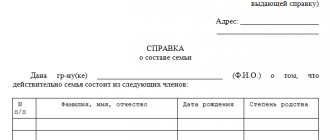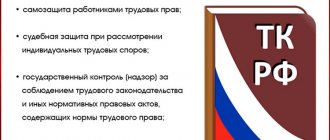2
The order and order of inheritance is determined by law. Family members are the first to receive the property of the deceased person. Along with them, dependents also have inheritance rights. If the applicants of the 1st stage are absent or have refused the inheritance, then the property goes to the relatives of the next stage. You can change the established order using an order. However, when drafting it, the rights of mandatory applicants must be taken into account. This includes disabled dependents of the testator.
Who are disabled dependents?
The Civil Code does not contain a precise definition of this term. It only describes the procedure for entering into inheritance by the specified category of citizens. Therefore, it is appropriate to turn to other legal acts.
Disabled dependents of the testator are children under the age of 18, students of higher educational institutions (full-time education) no older than 23 years, disabled people and citizens of retirement age living on the support of the deceased owner.
Dependents are considered to be persons who are fully supported by another entity. The key condition is the inability to support yourself. Temporarily unemployed able-bodied persons do not fall under the definition of “dependent”.
When registering an inheritance, the presence/absence of a family relationship between the dependent and the testator plays an important role. Relatives of the deceased subject do not have to live with the testator. In this case, non-relatives are required to live together with the deceased owner for at least 1 year.
Important! If a dependent is at the same time an heir under a will or a relative of the line called for inheritance, then he loses the right to an obligatory share.
Rights of citizens recognized as disabled dependents
According to the provisions of the first and second paragraphs of Article 1148 of the Code, both groups of citizens are considered equal in rights and are called together as heirs.
The peculiarity of the rights of dependents is that they are called upon to receive the property of the testator even if there is a will. If they are not included in the list of recipients of the deceased’s inheritance, they have the right to receive an obligatory part of his property.
This is enshrined in the first paragraph of Article 1149 of the Code. The size of the share of such citizens is half the share according to the law.
Dependents have the right to apply for inheritance rights within a general period of six months. This is enshrined in the first paragraph of Article 1154 of the Code; if the deadline is missed, its restoration is carried out in court (Article 1155 of the Code).
Also, this category of citizens has tax benefits. Minors do not pay the state fee, and disabled people pay fifty percent of the mandatory payment. This is established by the first paragraph of Article 333.38 of the Tax Code.
Minor heirs receive their shares in accordance with the provisions of Article 37 of the Civil Code. If necessary, their share can be reduced only with the permission of the guardianship.
Heirs of the eighth stage have the right to refuse their part of the property. This rule does not apply to the obligatory part of the inheritance.
Can a disabled person inherit an inheritance?
Incapacitated citizens and minor children can be heirs both by law and by will (1116 Civil Code of the Russian Federation). If one of the applicants turns out to be incapacitated at the time of opening the inheritance, then his interests are represented by authorized persons. Their powers must be confirmed by relevant papers.
A person who is not fully empowered to exercise civil rights and obligations is considered incompetent. These include:
- minor citizens (aged 0 to 14 years);
- adult citizens (recognized as legally incompetent by court decision).
The exercise of civil rights and obligations on behalf of an incapacitated citizen is entrusted to the representative. This could be a parent or guardian.
Documents confirming the authority of a representative of an incapacitated citizen
| Recipient | Representative | Document |
| Blood child | Parent | Birth certificate of a minor, civil passport of a parent |
| Adopted child | Adoptive parent | Birth certificate, parent's civil passport, adoption certificate, court decision on adoption (in special cases) |
| Ward child | Guardian | Guardian's certificate, birth certificate, guardianship order, guardian's passport |
| Adopted child | Adoptive parent | Adoptive parent's certificate, passport, child's birth certificate, agreement on the transfer of a minor to a family for upbringing |
| Child foster child of an organization for orphans | Organization employee | Power of attorney certified by the head of the organization, order to place a minor under supervision, birth certificate, passport |
| An adult incompetent citizen under the guardianship of an individual | Guardian | Court decision declaring incompetent, guardian's certificate, order appointing guardianship, heir's passport, guardian's passport |
| An adult incapacitated citizen in a specialized institution | Institution employee | A court decision declaring incompetent, an heir's passport, an employee's passport, a power of attorney certified by the director, an order for the enrollment of a citizen, an order for the appointment of a director |
A special procedure has been established for calling to inheritance the disabled dependents of the testator who were dependent on the deceased for at least one year before his death, i.e. heirs of the eighth stage. There are two groups of disabled dependents of the testator: 1) disabled dependents belonging to queues from the second to the seventh inclusive. These are persons who are relatives, or persons whose relations are equated to kinship (relatives of the adoptive parent, descendants of the adopted child), and persons in a relationship of property. Since the spouse, parents (adoptive parents) and children (including adopted children) of the testator are heirs of the first priority and have priority over all other heirs, they are not subject to the provisions on disabled dependents; 2) disabled dependents who are not included in the number of heirs by law established by the above-mentioned articles of priority. Such persons can be either relatives of degrees of kinship that do not matter in inheritance, who are in a relationship of property with the testator, which also has no legal significance (for example, the wife’s brother), or in general persons who are not related to the testator either by family ties or property. To inherit, disabled dependents of the first group must provide evidence confirming: a) their right to inherit in one of the queues; b) being a dependent of the testator (the period of dependence must be at least one year); c) disability. Dependency of young children is assumed. The fact of dependence of the others (ex-spouse, fifth-degree relative, etc.) is established by any admissible evidence. Being a dependent means that a person received his livelihood entirely at the expense of the testator or received from the testator such assistance as was his main and constant source of livelihood. It is not excluded that the dependent receives a pension or benefits, but it is necessary to prove that these pensions and benefits provided his needs only to a small extent. Disabled persons are: 1) persons who have reached retirement age (as a general rule, women are 55 years old, men are 60 years old; it should be taken into account that for some categories of workers the retirement age may be lower). Continuing to work after reaching retirement age does not provide grounds for recognizing a person as able to work and, accordingly, does not automatically deprive a citizen of the right to inherit as a disabled dependent. It also does not matter whether the dependent was assigned a pension or not, since the right to a compulsory share is associated with the fact of reaching retirement age, and not with the fact of assigning a pension; 2) disabled people of groups I, II, III, including disabled people since childhood. Disabled people of groups I and II are considered completely incapacitated. Disabled people of group III are considered to have partially lost their ability to work, however, given that they, as a rule, cannot fully provide for themselves and need social protection, they should also be classified as disabled persons when deciding on the issue of inheritance; 3) persons under 16 years of age, as well as students under the age of 18, students and graduate students under the age of 23. Incapacity for work is confirmed by relevant documents. In particular, a passport and birth certificate confirm a citizen’s disability due to age. If a citizen has been assigned a pension, the fact of incapacity for work can be confirmed by the presence of a pension certificate. To confirm the fact and group of disability, a medical and social examination report is presented. The period of incapacity for work does not matter for calling on dependents to inherit: the main thing is that the incapacity for work should occur at the time the inheritance is opened. Dependency has legal significance if it lasted at least a year before the death of the testator. Thus, dependence that lasted less than a year, or, although it lasted more than a year, but ceased long before the death of the testator, does not provide grounds for calling to inheritance. Disabled dependents are called upon to inherit along with the heirs of the line that inherits. At the same time, disabled dependents have equal rights in inheritance both with the heirs of the corresponding line and among themselves, regardless of whether they are heirs of the same line or different ones. Disabled dependents of the first group inherit on an equal basis with the heirs of the queue to which they belong. Disabled dependents of the second group, in order to obtain the right to inherit, must prove not only the fact of incapacity for work, but also the fact of being dependent on the testator for at least a year and living together with the testator. In the absence of heirs listed in the Civil Code, by law, dependents of the second group acquire an independent right of inheritance and are recognized as heirs of the eighth stage. However, such heirs can be subjects of inheritance law only in the case of inheritance by law, since when inheriting under a will, these persons can be excluded from the number of heirs by the testator himself.
Inheritance rights of disabled dependents
To determine the scope of rights and obligations of applicants, it is necessary to consider different methods of inheritance - law/will.
If there is an order, mandatory applicants are entitled to ½ of the recipient’s share by law (Article 1149 of the Civil Code of the Russian Federation). To determine the specific size of the share, you need to take into account the number of applicants and the composition of the inheritance.
The rights of the recipients are satisfied at the expense of property not specified in the order. If there is no other property, then the allocation of a part occurs from the common property. The shares of the heirs are subject to reduction by order.
Example. Several years before his death, the testator made a will. He gave his apartment to his daughter and son from his first marriage. The second property was registered directly in the name of my sister. The man had no other property. After his death, the heirs declared their rights. The testator's sister also contacted the notary. The basis for receiving a mandatory share is loss of ability to work. The woman received disability due to an injury at work a year before her brother’s death. As a dependent of the testator, she was entitled to 1/6 of the property. The calculation of the share is made based on the number of applicants - there are only three heirs (two children + sister).
Of course, the children of the testator can file a claim for refusal to award the obligatory share of the inheritance. As a basis, it can be proven that the heirs used the apartment during the life of the owner, or the presence of separate housing for the dependent.
If there is no will, then the procedure for dividing the inheritance is somewhat different. Property is distributed among recipients in equal shares.
Dependents of a deceased citizen are also entitled to a share of the property. Moreover, they can enter into property rights with applicants of the line that is called for inheritance.
Example. Citizen K died of a heart attack. He left behind a house in the village and a deposit. The man was divorced. The house was his personal property. The recipients are two sons. The applicants lived separately from their father. The testator did not draw up a will. The heirs declared their rights. During the paperwork process, another contender appeared - the testator's disabled nephew. His parents died in a car accident. After which the testator took the 7-year-old child to live with him. The nephew was fully supported by his uncle. At the time of the citizen’s death, the child was 10 years old. He could not contact a notary on his own. Parental or guardian consent was required. The paternal grandmother was considered the child's guardian. She submitted an application to the notary on behalf of the minor. The testator's dependent was entitled to 1/3 of the inheritance. The notary divided the inheritance among three people.
Do the obligations of the testator pass to the beneficiaries? Acceptance of property implies the automatic transfer of the obligations of the deceased citizen to the heirs.
The exception is personal obligations - alimony, payment of fines for violating traffic rules. Moreover, if alimony arrears arose during the life of the testator, then it is repaid at the expense of the inheritance (Article 1175 of the Civil Code of the Russian Federation).
If there are several applicants, then debt obligations are distributed among them in proportion to the accepted share of the inheritance.
Conditions for inheritance by disabled dependents
The law establishes a number of requirements for a person who requires the allocation of a mandatory share. The following citizens are recognized as dependents:
- blood grandparents of the owner who do not have the ability to provide independent financial support (for example, a pension is the only type of income);
- parents and adoptive parents who have reached 60-65 years of age have no income other than a pension, including disability;
- adult children, brothers, sisters, grandchildren with disabilities;
- minor children, brothers, sisters, grandchildren;
- children, brothers, sisters, grandchildren, aged 18 to 23 years, undergoing full-time education;
- foreign citizens permanently residing with the owner for at least 1 year and leading a common joint household.
To recognize a foreign citizen as a dependent, it is not enough to live together with the testator. To do this, it is additionally necessary to maintain a general household.
Example. Citizen S., 65 years old, lived in a room in a 4-room apartment under a social tenancy agreement. Other tenants lived in other rooms. He started a friendly relationship with neighbor A., 60 years old. Each of the pensioners lived in their own room, were registered in the same apartment, jointly purchased food, medicine and spent leisure time. In 2021, S. died. A. declared her rights as a cohabitant. The court refused to recognize A. as a dependent of S., since each of the pensioners was registered in a separate room.
How to inherit property from an incompetent heir
The order of inheritance is determined by law. Acceptance of the inheritance occurs upon the application of the applicant.
Documents are submitted to the notary within 6 months (Article 1154 of the Civil Code of the Russian Federation). The starting point is the date of death of the person. However, this order may be changed.
For example, if a person was declared dead through a court. The countdown of time is carried out from the moment the procedural act comes into force.
The procedure for registering an inheritance does not depend on the legal capacity of the applicant. The application for acceptance of the inheritance is submitted by another person.
The legal representative will have to prepare the papers and pay the fee. Registration of rights occurs on the basis of a certificate.
Important! Responsibility for the safety of inherited property after its acceptance rests with the legal representative of the minor. However, a citizen does not have the right to dispose of it without the prior permission of the guardianship authority.
Procedure
The recipient of the property of the deceased or his representative needs to visit a notary (Article 1153 of the Civil Code of the Russian Federation). The papers are submitted at the place of registration of the deceased subject.
If it is unknown, then the link goes to the location of the real estate or the most valuable property of the testator. The package of documents depends on the type of property (house, land, car, apartment).
Statement
An inheritance case is opened at the request of the applicant. The document contains:
- name of the notary office;
- information about the beneficiary (full name, residential address);
- mention of the presence/absence of relationship with the deceased subject;
- reference to the will (if any);
- the essence of the petition (acceptance of inheritance);
- date of document preparation;
- applicant's signature.
Sample application for issuance of a certificate of inheritance rights
Documentation
When submitting an application you need to prepare:
- Identification.
- Death certificate.
- The original will.
- Evidence of relationship to the deceased subject.
- Papers confirming the right to inheritance (pension certificate, court decision on recognition as a dependent, birth certificate).
- Title and title documents for property.
- Certificate of the last place of registration of the deceased citizen.
- Report on the value of the accepted property.
- Receipt for payment of the duty.
If the beneficiary is a young child, then an additional passport of the legal representative will be required.
Expenses
When performing notarial acts, a fee is withheld. Its size depends on the price of the property and the degree of relationship. Rates:
- 0.3% of the value of the inheritance is paid by close relatives (spouse, children, parents, brothers, sisters). The maximum amount of the duty should not exceed 100 thousand rubles.
- 0.6% of the value of the property received is paid by other applicants. The payment cannot exceed 1 million rubles.
Tax calculation is carried out on the basis of expert assessment. It can be ordered from any specialized organization (private or public). The price depends on the type of property, region of residence, and popularity of the appraisal company.
Applicants pay separately for notary services. They are not included in the amount of accrued state duty.
The last cost item is state registration of property rights. After which the assignee becomes the owner of the property.
If any disputes arise between the heirs, they are resolved in court. The amount of costs depends on the stated requirements.
The main problems when registering an inheritance
Typically, applicants do not have problems when registering an inheritance. It is enough to provide evidence of the death of the citizen and papers confirming the relationship with the testator.
In the case of the testator’s dependents, everything is not so clear. Beneficiaries need to prove that they have lost their ability to work, for example due to a work injury or as a result of reaching retirement age.
Additionally, you need to confirm the fact of being supported by the testator. This takes into account the nature and amount of assistance.
The last condition is confirmation of cohabitation with the deceased citizen for a year. If the person is a relative, then proof of cohabitation can be an extract from the house register.
Important! If a person is not registered at his place of residence, then he will have to prove the legal fact in court. The absence of one of the conditions excludes the possibility of succession as a dependent.
Conditions for receiving inheritance by disabled dependents
As stated above, inheritance by disabled dependents of the testator is not related to kinship or marriage. This status is determined on the basis of the factors specified in Article 1148 of the Civil Code of the Russian Federation. If the deceased’s dependent is his wife, then the list of requirements is narrowed.
Let us consider the basic conditions for calling persons to inheritance:
- Disability. In this case, it is necessary to be dependent on the testator. The fact of disability can be explained by age or health status. It is determined on the day of opening of the inheritance. If a citizen is disabled, this must be confirmed by an appropriate certificate from a medical and social examination.
- Being a dependent for at least one year before the death of the testator. If the deceased supported another citizen for a long time, but before his death stopped providing him with financial assistance, then the dependent is not called upon to inherit. In addition, assistance must be constant. Irregular payments do not equate to full financial support.
- The period of dependency can be confirmed by certificates from a consumer, housing or any other specialized partnership. The very fact of being a dependent is confirmed by the presence of an insurance pension for the loss of a breadwinner. The need for maintenance can be determined in court in relation to paragraph 2 of Article 264 of the Code of Civil Procedure of the Russian Federation.
- Living together with the testator during the last year of his life. This requirement applies only to those dependents who are not members of the testator’s family and are not related to him. To prove the fact of cohabitation, documents confirming registration, certificates from housing authorities, etc. are used. In addition, actual residence can be proven in court.
Thus, the dependent does not have to be a relative of the deceased. For example, a citizen turned to a notary who wanted to accept the inheritance of her deceased partner. Since she was not his relative or wife, the only way to receive the inheritance was as a dependent. The woman presented a certificate of disability. In addition, she deposited her entire pension into a bank account, being fully supported by the deceased.
To receive the inheritance, the applicant had to prove the fact of cohabitation with the deceased. To do this, she submitted a certificate of registration at the testator’s residence address during the last 6 months of his life. Since to establish the fact of dependency it is necessary to live with the deceased for at least a year, the applicant was refused.
Refusal of a dependent's inheritance
An asset claimant may waive its rights. The procedure is carried out in two ways - without action and by submitting an application.
The reasons for refusal may not be specified. However, one of the reasons may be the existence of the right to accept an inheritance for several reasons. For example, if the testator indicated a dependent in the order.
When transferring property rights to another person, a written application is submitted. It is impossible to revoke a refusal of an inheritance after it has been notarized. Refusal to accept an inheritance by an incapacitated person is permitted only with the consent of the guardianship authority.
Dependents recognized as disabled as an independent group of heirs
The provisions of the third paragraph of Article 1148 of the Code establish that in the absence of heirs of all orders, persons included in the eighth group of heirs can receive the property of the deceased.
Citizens included in this category of heirs must be dependents of the deceased, but not his relatives. This is enshrined in the second paragraph of Article 1148 of the Code.
Features of inheritance are as follows:
- All persons included in this group of heirs are entitled to equal shares of the deceased's property.
- Dependents receive the right to receive an inheritance if there are no heirs of higher priority, they are found unworthy, or they refuse to receive property. This is enshrined in Article 1141 of the Civil Code.
Disabled dependents of the testator have the right to receive the property of the deceased only in cases where the fact of incapacity and dependency is documented, and they comply with the parameters established by law.
If there are no such papers, the citizen’s chances of receiving an inheritance from the testator are reduced. The period for entry into inheritance rights for these categories of citizens is also six months.
Your rating of the article









